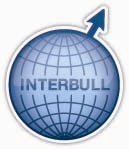
Download as pdf
EXECUTIVE SUMMARY
December 2020
This executive summary reports the latest information about the Interbull Centre and important decisions taken by the Steering Committee during their last meeting for the year.
Personnel
Alexis Michenet has accepted another job opportunity so he will be leaving the Interbull Centre at the end of February 2021. This next chapter in his career takes him home to France. We are very pleased that he continues to work in the beef genomics area.
Mohammed Abdallah Ahmed Sallam completes his temporary employment with the Interbull Centre on 31 December 2020, and will start his PhD at SLU’s Department for Animal Breeding and Genetics on 1 January 2021.
We thank both Alexis and Sallam for their contributions during their time at the Interbull Centre and wish them the best of luck.
In the New Year we will give you an update on the recruitment of two new members of staff, which is currently in process.
Interbull Service Fee
During 2020, the Interbull Business Funding Models Task Force reviewed current fee structures and explored potential fee structures for novel traits. Some of this was presented during the virtual 2020 Interbull Business Meeting.
The Business Funding Models Task Force has reviewed the original proposal and considered the comments received during this summer’s online business meetings. Based on the revised recommendations to the Interbull Steering Committee, the following decisions have been made:
Current Service Fee Structure:
Despite increased (salary) costs at the Interbull Centre and the decreasing number of milk-recorded cows (on which the service fee is based), the Interbull service fee structure and level have not changed since 2013.
To address this, the Steering Committee approved a new policy: The fees for services offered by the Interbull Centre will be increased annually by a certain amount. The exact level will be decided by the Interbull Steering Committee on an annual basis. For 2021, the increase has been set at 2% for all Interbull Dairy services with the exception of IgHOL, which commenced only in December 2020.
Service Fee Structure for Novel Traits
The fee structure for novel traits is expressed as a percentage of the fee paid for MACE services for production traits. This approach is consistent with all other trait groups within the MACE service portfolio.
The distinction for novel traits, however, is that countries which have invested the longest in the collection of the new phenotype will benefit from a lower fee. Countries with a higher proportion of bulls proven for the novel trait in question (i.e.: CMA, Clinical Mastitis) relative to production (Milk) will receive a level of credit to a maximum of 50% (see Table 1 for CMA). Countries that started collecting the new phenotype more recently are given the opportunity to lower their fee after a reasonable period of collecting these phenotypes. Therefore, the period to be included in the fee calculation is set to a 15-year period, ending 6 years from the current year (i.e. 2015 in 2021).
Contribution Category |
Min |
Max |
FEE |
1 |
0% |
19.9% |
100% |
2 |
20% |
39.9% |
87.50% |
3 |
40% |
59.9% |
75% |
4 |
60% |
79.9% |
62.50% |
5 |
80% |
100.0% |
50% |
Clinical Mastitis Evaluation (CMA) for SNP training introduced in January 2021
The first official test run for a new evaluation -Clinical Mastitis (CMA) for SNP training- is offered during the January 2021 test run, with the official evaluation set for April 2021. The aim of the CMA evaluation is to provide better data (than the current MAS evaluation which includes both MAS and SCS data) for SNP training for the genomic evaluation of Clinical Mastitis. The CMA evaluation results will only be provided to the participating countries and may not be used for publication purposes.
The service fee structure for novel traits (see above) is applied to CMA, based on the following key elements are:
- The “Base” fee for CMA evaluations is 8% of the Production fee.
- The period over which contribution is calculated is 15 years (2001-2015).
- Countries with 80% of their Production-proven bulls also proven for CMA, will get a 50% credit and hence pay 4% of the Production fee (Contribution Category 5).
Interbull Service users have received detailed technical and financial information for this new service.
Future Meetings
Please mark your calendars for the following Interbull events:
A Genomic-free EBV Webinar will be held on 11 February 2021; 14:00-15:30 CET. More information on the program and registration options will be provided in January 2021.
ICAR-Interbull 2021 meeting will be held from 26 April to 30 April 2021. It will be a virtual conference with the option (if circumstances allow) to be present at the World Trade Center (WTC) in Leeuwarden, The Netherlands. The conference is dedicated to circular farming and its impact on animal genetics, recording of data and cattle/herd management (same as originally scheduled for ICAR-Interbull 2020). The ICAR General Assembly and the joint ICAR-Interbull Plenary Meeting on circular farming are scheduled for Wednesday 28 April. The Interbull Business Meeting is planned for Thursday 29 April and Interbull Open Meetings on Monday 26 and Friday 30 April. There will additionally be very interesting ICAR sessions on the impact of circular farming on breeding and breeding goals, recent developments in animal identification, data analytics, new opportunities through milk analysis, new developments in milk recording, possible applications of blockchain in recording activities, on goat and sheep performance recording and on sampling and recording devices.
See https://www.icar2021.nl/ for the latest information.
We at the Interbull Centre would like to take this opportunity to wish you all a very Merry Christmas and a Happier and Safer 2021 full of new collaborations and great achievements!
